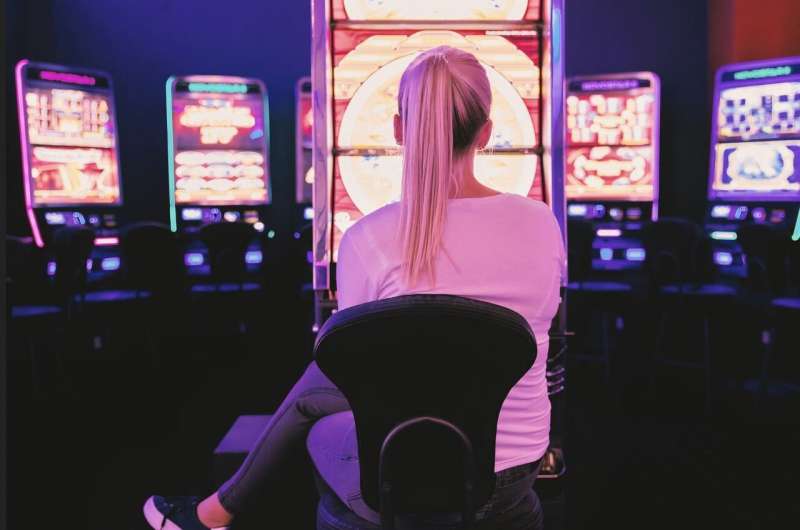Study examines how to help with problem gambling

With the lure of online gambling high during COVID-19 lockdowns—and SA gambling venues now reopening—partners and families of problem gamblers may be the first to see a problem emerging.
Many problem gamblers do not acknowledge their addiction and do not seek help—and that's when people close to them need support to cope, and potentially even help turn the situation around by motivating a partner to seek help.
"Most people with gambling problems don't seek formal help, so problems often remain hidden within families," says Flinders University expert Ben Riley, an expert therapist with the Statewide Gambling Therapy Service.
"As well as evidence-based strategies to help motivate non-help-seeking problem gamblers to acknowledge their problem and seek help, it's clear we also need effective programs to help partners protect their own wellbeing and perhaps help their partner to seek treatment or targeted interventions."
Gambling and addiction experts at the Flinders University and Deakin University warn partners and families of such problem gamblers can suffer from chronic worry, exhaustion, relationship conflict, and an overwhelming sense of isolation.
"They may become hypervigilant as a response to a non-disclosing problem gamblers' activities," adds co-author Professor Sharon Lawn.
"In our in-depth interviews with 15 such partners, they said they found it exceedingly difficult to reliably detect their partners' gambling behavior, resulting in chronic hypervigilance, and many were reluctant to seek help due to stigma," she says.
"Families are often the first to know something is going on, and they really share the adverse consequences in many ways. Involving families sooner to help identify gambling problems earlier is a missed opportunity."
Mr Riley says new programs could focus on helping family members or partners to motivate their loved one to seek help.
"It's a real gap in knowledge because only a very small proportion of problem gamblers seek help—and that may be only when significant harm has been done to finances, relationships, reputation and employment," he says.
The new article, "When I'm not angry I am anxious: The lived experiences of individuals in a relationship with a non-help-seeking problem gambler—A hermeneutic phenomenological study," has been published in Journal of Social and Personal Relationships.
More information: Ben J. Riley et al. "When I'm not angry I am anxious": The lived experiences of individuals in a relationship with a non-help-seeking problem gambler—A hermeneutic phenomenological study, Journal of Social and Personal Relationships (2020). DOI: 10.1177/0265407520928581




















